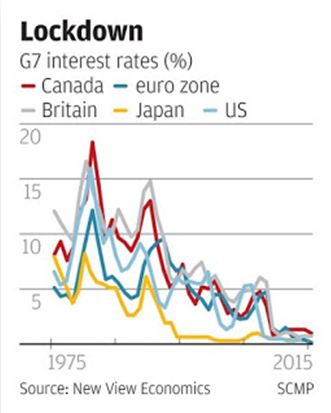
Gordon T. Long, Co-Founder for the Financial Repression Authority, interviews Leo Kolivakis, Publisher and Editor of the Web Site “PensionPulse.blogspot.com“. Mr. Kolivakis is an independent senior economist and pension and investment analyst with years of experience working on the buy and sell-side. He has researched and invested in traditional and alternative asset classes at two of the largest public pension funds in Canada, the Caisse de dépôt et placement du Québec (Caisse) and the Public Sector Pension Investment Board (PSP Investments). Also Mr. Kolivakis consulted the Treasury Board Secretariat of Canada on the governance of the Federal Public Service Pension Plan (2007) and been invited to speak at the Standing Committee on Finance (2009) and the Senate Standing Committee on Banking, Commerce and Trade (2010) to discuss Canada’s pension system.
You can follow his blog posts on Bloomberg terminal and follow Mr. Kolivakis on twitter @PensionPulse where he posts links about pension and investment articles.
In this 45 minute video interview Leo Kolivakis discusses the importance of a good pension system with strong governance being critical in insuring the average persons retirement security. Pension liabilities are going up while bond yields are going lower which is going to create a huge amount of stress on pensions!
Contributory Pensions and 401Ks have proven to be a failure compared to Defined Benefits programs. History will eventually show that the transition from Defined Benefits to Contributory Benefits was in fact is detrimental to the global economy.
Structural Issues
Leo Kolivakis believes we have entered a period of long deflation due to six major structural issues:
- The global jobs crisis
- Aging demographics
- The global pension crisis
- Rising inequality
- Technological Advances
- High and unsustainable debt all over the world
Each of these structural factors is significantly contributing to global deflation. Together they are a domino effect, exacerbating deflationary headwinds in the world. They are causing rates to remain ultra low and will continue to for years to come .
Rising Inequality
What is not understood and fully appreciated by economists is how the dramatic rise in inequality brought on by low interest rates is limiting aggregate demand growth.
Investing in an Era of Low Aggregate Demand
Bond yields are going lower to negative and you must prepare for a lower returns, for a very long time
Question: If rates remain ultra low, won’t that be good for residential and commercial real estate?
“Not necessarily. If deflation becomes entrenched, low rates will exacerbate debt and increase unemployment at the worst possible time. It can easily spiral into a debt deflation crisis and you’ll see rising vacancy rates and/ or declining rental rates. In this environment, real estate is the asset class that makes me most nervous.”
But it’s not just real estate that will suffer if deflation becomes more entrenched.
“All asset classes will exhibit a prolonged period of low or negative returns except for…good old nominal bonds!”
Abstract written by Joshua Brown-Tapper
Joshua.BrownTapper@ryerson.ca




 02/19/2016 - Leo Kolivakis: Financialization is causing Inequality, which is limiting aggregate demand growth!
02/19/2016 - Leo Kolivakis: Financialization is causing Inequality, which is limiting aggregate demand growth!



